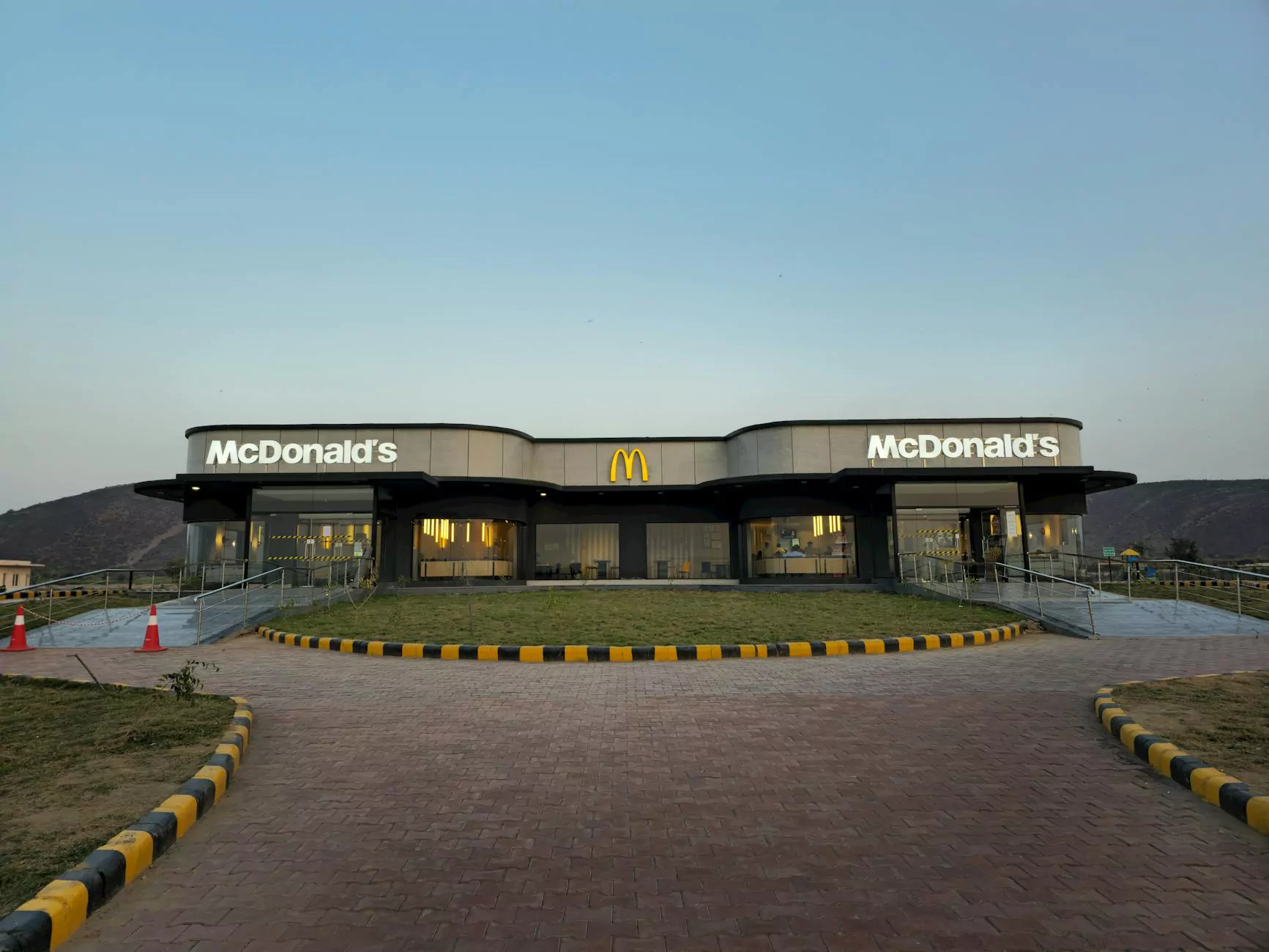Comprehensive Insights into Oil Cooler for Diesel Engines: Boosting Performance and Ensuring Longevity

In the realm of modern diesel engine technology, the oil cooler for diesel engines stands out as a critical component that significantly influences engine health, efficiency, and lifespan. As demand for high-performance, reliable diesel engines continues to surge across industries—from transportation and manufacturing to agriculture—the importance of maintaining optimal operating temperatures cannot be overstated. This article delves into the intricate world of oil coolers, their vital functions, innovative designs, maintenance practices, and how choosing the right oil cooler can make a remarkable difference for your diesel engine.
Understanding the Functionality of Oil Cooler for Diesel Engines
What Is an Oil Cooler and Why Is It Essential?
An oil cooler for diesel engines is a heat exchange device that helps regulate the temperature of the engine oil. By dissipating excess heat generated during combustion and lubrication processes, the oil cooler ensures that the oil maintains an optimal temperature range. This prevents the oil from becoming too viscous or degrading prematurely due to excessive heat, thereby protecting critical engine components.
During operation, diesel engines generate significant heat due to high compression ratios and intense combustion. Without effective cooling, this heat can cause oil to lose its lubricating properties, leading to increased wear, decreased efficiency, and eventual engine failure. An efficient oil cooler mitigates these risks by maintaining stable oil temperature, which in turn preserves engine integrity.
Types of Oil Coolers for Diesel Engines
Oil coolers for diesel engines come in various designs, each engineered to suit specific operational needs, engine sizes, and environmental conditions. The main categories include:
- Shell and Tube Oil Coolers: These are the most common type, featuring a series of tubes enclosed within a shell. Oil flows through the tubes while coolant circulates around them, facilitating heat transfer. Their durable construction makes them suitable for heavy-duty applications.
- plate-type Oil Coolers: Consisting of multiple thin plates stacked together, these coolers provide a high surface area for heat dissipation. They are typically more compact and efficient, ideal for smaller or space-constrained machines.
- Air-Cooled Oil Coolers: Utilizing ambient air through finned surfaces, these coolers eliminate the need for liquid coolant. They are lightweight and simple, best suited for applications where liquid cooling is impractical.
Benefits of Using a High-Quality Oil Cooler for Diesel Engines
Investing in a high-quality oil cooler for diesel engines offers numerous advantages that translate to better engine performance and cost savings. Key benefits include:
- Enhanced Engine Reliability: Maintaining optimal oil temperature minimizes wear on engine components, reducing the likelihood of breakdowns.
- Prolonged Engine Lifespan: Proper cooling extends the service life of engine parts by preventing thermal stress and oil degradation.
- Improved Fuel Efficiency: Efficient cooling ensures smoother operation, leading to better fuel economy.
- Lower Maintenance Costs: Protecting engine parts reduces the frequency and severity of repairs.
- Operational Safety: Overheating can cause catastrophic failures; an effective oil cooler prevents such risks.
Choosing the Right Oil Cooler for Your Diesel Engine: Critical Factors
When selecting an oil cooler for diesel engines, several considerations come into play to ensure compatibility and performance:
1. Engine Specifications and Size
The size and power output of your engine dictate the cooling capacity required. Larger engines demand more robust coolers with higher heat exchange efficiency.
2. Operating Environment
Extreme temperatures, dust, and humidity affect cooler performance. Choose coolers designed to withstand harsh conditions for durability.
3. Coolant Compatibility
Ensure the cooler materials are compatible with your coolant type—be it water, glycol, or synthetic solutions—to prevent corrosion or chemical reactions.
4. Space Constraints
Compact designs like plate-type coolers are suitable for limited space applications, whereas shell and tube models can accommodate larger systems.
5. Maintenance and Accessibility
Opt for coolers that facilitate easy cleaning and monitoring, minimizing downtime and repair costs.
Installation and Maintenance of Oil Cooler for Diesel Engines
Proper Installation Techniques
Accurate installation involves secure mounting, appropriate connection of oil lines, and ensuring adequate airflow or coolant circulation. Improper installation can lead to leaks or reduced cooling efficiency.
Routine Maintenance Practices
- Regular Inspection: Check for leaks, corrosion, or blockages.
- Cleaning: Remove debris, dirt, and oil residues from fins and tubes.
- Coolant Check: Ensure coolant levels and quality remain optimal.
- Performance Testing: Monitor oil temperature during operation to detect cooling issues early.
Innovations in Oil Cooler Technology for Diesel Engines
The industry continually advances with innovative solutions aimed at improving efficiency and durability:
- Advanced Materials: Using corrosion-resistant alloys extends lifespan.
- Enhanced Heat Transfer Surfaces: Fin and finned-tube designs increase surface area for superior cooling.
- Smart Monitoring Systems: Integrate sensors to provide real-time temperature data and predictive maintenance alerts.
- Modular Coolers: Offer scalability and easy customization for diverse engine applications.
Partnering with Leading Spare Parts Suppliers: Why Quality Matters
Choosing a reputable spare parts supplier like client-diesel.com ensures access to high-quality, certified oil cooler for diesel engines. Benefits include:
- Guaranteed compatibility with your engine model
- Superior materials and manufacturing standards
- Expert technical support and guidance
- Warranty and after-sales service
- Competitive pricing and quick delivery
Why Choose client-diesel.com for Your Diesel Engine Parts Needs?
At client-diesel.com, we specialize in providing premium diesel engine parts and spare parts tailored to meet the highest standards. Our extensive catalog features an array of oil coolers for diesel engines designed to optimize performance, reduce maintenance costs, and enhance longevity. Our dedicated team ensures that each product adheres to rigorous quality controls, so you receive parts that deliver proven results.
Final Thoughts: Enhancing Diesel Engine Performance through Effective Cooling Solutions
The oil cooler for diesel engines is not just a peripheral component but a core element that impacts overall engine health, efficiency, and lifespan. By understanding its functions, selecting the right type, and maintaining it properly, engine operators can experience smoother operation, fewer repairs, and extended service life. Partner with trusted suppliers like client-diesel.com to access high-quality, reliable parts and technical expertise.
In a competitive industry landscape, investing in top-tier cooling solutions is a strategic decision that yields long-term benefits. Remember, a well-cooled engine performs better, lasts longer, and offers greater returns on your investment. Choose quality, innovation, and expertise—choose client-diesel.com.









